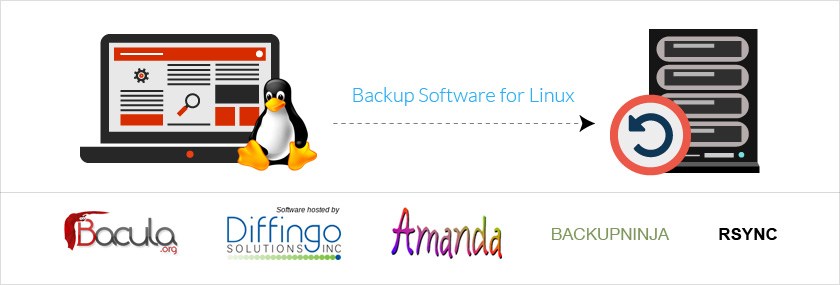
It’s gratifying when the world starts to widely adopt something you’ve known to be superior for a long time. Thats the way most Linux devotees feel; the platform has grown enormously in popularity over the last few years, meaning that more and more open source software has been created with Linux users specifically in mind.
One of the first things any computer user needs is good backup software, and while there have been solid open-source Linux backup options for a long time, they’re now being developed faster than ever. Here’s a look at our current “top five.”
We hope you appreciate the fact that we aren’t saying that “Bacula represents a Quantum Leap in Linux backup software” – even though that’s largely true because Bacula is one of the most powerful open source options you can find. It’s not only everything a local user could want, it’s enterprise-ready and able to handle an entire network of computers running Windows and OS X as well as Linux. Because of this power and flexibility, there’s a steeper learning curve with Bacula than there is for most competitors; there are multiple applications to learn so you can handle data recovery, archiving and storage management in addition to doing backups ranging from incremental to full. Bacula can be configured via command line, online interface or GUI. It may be way too much for your needs – but it’s a fabulous piece of open source software.
If you’re already trembling just reading about Bacula, we’re pleased to present fwbackups. This tool is about the most simple Linux backup solution you can find, in large part because it’s probably already in your distribution’s repository. With an easy-to-use interface, you can schedule recurring backups, do an incremental backup or perform a one-timer (for a single directory or an entire drive according to your needs), choose between rsync or any of the major tar formats, and backup remotely or locally. fwbackups is designed for Linux users, but will work on most major operating systems with a few tweaks.
For system administrators in search of great open source backup software, Amanda (Advanced Maryland Automatic Network Disk Archiver) is the clear winner. Once the proper software is installed (there’s different software for the backup server and the clients), a sysadmin can use Amanda to backup multiple hosts on a network to disk, optical media or tape. Linux backups are done via dump or tar, while Windows backups can also be performed with Amanda by using Samba. Incremental, differential and full backups, as well as consolidation, can all be easily managed with this software.
Linux solutions don’t come more lightweight than this one. As long as you have a rudimentary familiarity with command line operations, all you have to do is put a few specific configuration files into the /etc/backup.d/ directory. That will let you centrally run or schedule backups for multiple hosts either fully or incrementally, with options including secure, encrypted and remote backups supported.
Why fix something that’s not broken? Rsync has been one of the most widely used tools for backing up Linux machines for a long, long time, and for a good reason: it’s simple and it works well. If you don’t want to run this venerable tool from the command line, you can get matching front ends for it. But for flexibility (e.g. creating a script to schedule automated backups via cronjob) and power, Rsync is still tough to beat.